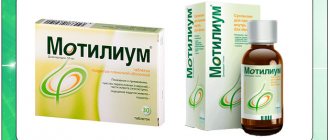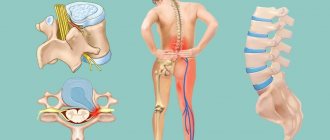During pregnancy, many women want to try something extraordinary. It often happens that a familiar dish seems bland and tasteless, so there is a need to use spices or seasonings. However, while carrying a child, not all dishes can be consumed. A natural question arises whether the use of mustard during pregnancy is allowed, in what form the product can be used and whether it will harm the woman and the unborn child.
What is mustard?
Mustard is an annual plant with a spicy aroma. It can be quite different, but the most commonly eaten are the white, black and brown varieties.
White mustard. It has a stimulating effect on blood circulation, therefore it can increase blood pressure. It contains a lot of calcium, magnesium, potassium and protein.
Black mustard. It has a rather pungent taste. Contains calcium, magnesium, potassium, phosphorus and vitamins A, B, E. In addition, it contains a lot of beta-carotene. The famous mustard plasters are produced from this plant variety.
Brown mustard. Not as spicy as the previous one, but still spicier than the white one. It is distinguished by its rich content of iron, ascorbic acid, carotene and calcium.
Healing properties
A plant of any type is distinguished by the content of many useful components. Among the healing properties of mustard are the following:
- improved appetite;
- inhibition of cancer cell development;
- acceleration of metabolism;
- secretion of gastric juice;
- reducing the severity of symptoms of rheumatoid arthritis;
- improvement in asthma;
- treatment of skin diseases;
- calming effect for pneumonia, sore throat, bronchitis;
- pain relief during migraines.
Mustard is known for its anti-inflammatory, antibacterial, antiseptic and antifungal properties.
Mustard during pregnancy: is it possible or not?
The beneficial effect of the plant during colds is known. The seasoning contains a large amount of vitamins and minerals that contribute to a speedy recovery. This is very important for pregnant women, due to the fact that any disease affects the development of the fetus and it is prohibited to use more medications. In addition, mustard during pregnancy can strengthen its own immune forces. It has been proven that the aromatic powder, due to its increased content of vitamin E, has a beneficial effect on the intrauterine development of the fetus.
It is recommended to use mustard oil during pregnancy, which has beneficial properties. The product contains a complex of vitamins that promote the full growth and development of the embryo. In addition, the elasticity of tissues and joints increases, which reduces the risk of ruptures during childbirth. It has long been known that mustard oil also contributes to increased lactation.
However, mustard during pregnancy, like any other hot seasoning, can cause significant harm. But such a statement applies to those who are accustomed to consuming it in large quantities or in its pure form. As a result of such use, a woman may develop shortness of breath, rapid heartbeat and weakness.
What are the benefits of mustard?
The product has a number of positive properties:
- Strengthens the immune system.
- Stimulates blood circulation in the mucous membranes of the oral cavity and upper respiratory tract.
- The composition is rich in vitamin E, beneficial to the fetus.
- Indicated for decreased appetite, as it stimulates it.
- Helps with constipation.
Before and after childbirth it will be beneficial because it enhances lactation.
Contraindications for use
Mustard, like any spicy product, may have contraindications. Among the main ones are:
- kidney disease;
- hypersensitivity to the product;
- tuberculosis.
Of course, healthy pregnant women are not prohibited from consuming a little seasoning during lunch or dinner. Many experts even recommend including it in the diet in the midst of colds. However, you should exercise reasonable caution and listen to your internal sensations, due to the fact that discomfort in the stomach or an allergic reaction may occur. Such symptoms are a reason to stop introducing mustard into your diet.
Terms of use
Is it possible to eat mustard during pregnancy? Experts say that hot seasoning is not contraindicated for expectant mothers, but it is recommended to choose a leafy type of plant. Gynecologists also know that when carrying a child, the body reacts differently to familiar foods, so it is necessary to include seasoning in the menu only in small quantities. If you do not follow this rule, you may develop problems with the gastrointestinal tract. In addition, the greatest risk is uterine tone due to problems with the digestive system.
Nutritionists warn that pregnant women, like all other people, are contraindicated to take dishes with mustard on an empty stomach.
Overdose symptoms and contraindications
There are both benefits and harms of this spice. Can pregnant women have mustard? Not if you have any serious illnesses. If it is consumed in large quantities, the following symptoms become more active:
External use
Mustard is often used to relieve cold symptoms. A natural question arises: is it possible to warm your feet with mustard during pregnancy? Gynecologists warn that external use of the powder during pregnancy is extremely undesirable. It has been proven that foot baths and any heating of the lower extremities can cause uterine tone, which causes miscarriage or premature birth. Therefore, when answering the question whether it is possible to warm your feet with mustard during pregnancy, you should rely on the above.
In addition, doctors prohibit the use of mustard plasters by pregnant women. They also have a warming effect and can increase blood pressure. This situation is dangerous for both the expectant mother and the developing fetus.
As for whether it is possible to put mustard in socks during pregnancy, the opinions of gynecologists vary. If there is no threat of miscarriage and the cold may get worse, then a slight warming effect will not harm. However, it is advisable to consult a doctor in each individual case.
Mustard plasters in early pregnancy
Most doctors during this period are of the opinion not to use mustard plasters as a remedy.
Regardless of the stage of pregnancy of the expectant mother, it is recommended not to use mustard plasters to treat cough in order to reduce all kinds of risks and dangers.
Thermal procedures during pregnancy are prohibited, especially in the pelvic area. Such procedures can lead to miscarriage. In addition, the essential oils that make up mustard plasters can contribute to allergic reactions, including suffocation, especially in children.
The most dangerous manifestations when using mustard powder are burns and rashes. Particularly sensitive skin should not be exposed to mustard plasters.
Mustard in the first half of pregnancy can lead to spontaneous abortion, and in the later stages - to the premature birth of a premature baby!
The necessary conditions
In order for mustard to bring only benefits during pregnancy, it is important to pay attention to its quality. It is recommended that you carefully study the composition given on the packaging before purchasing. It is necessary to choose only a product that is made exclusively from natural ingredients.
You can prepare the seasoning at home. In this case, you should purchase mustard powder. When purchasing, pay attention to expiration dates, as well as the quality of the packaging itself.
During pregnancy, the seasoning can only be consumed in small quantities. Women are advised to pay close attention to how they feel after using it. If you experience stomach pain after eating, shortness of breath, problems with stool, weakness or other complications, you should completely eliminate mustard from your diet.
Why do pregnant women crave mustard?
As mentioned above, mustard can be considered a healthy product and should be included in a small amount in the diet of pregnant women. But this applies to its use in food.
But doctors strictly prohibit the use of mustard oils and powders as warming elements! Although some people, not following the advice, pour a little powder into their socks when they have a cold.
Expectant mothers who eat a little mustard almost never complain about their appetite, as they have excellent digestion. By the way, many women have problems with this issue when they become pregnant. This is especially true for constipation and stool, and when using mustard the whole process returns to normal.
Of course, there are also negative effects on the pregnant woman’s body. Side effects include arrhythmia, general weakness, and sometimes shortness of breath. In some cases, a girl may begin to feel unwell and faint.
Mustard delicacy can be eaten in the early stages. And if you want to constantly enjoy this taste, French mustard will help you, which is not so spicy, its benefits are no less, and there is no harm at all. This mustard is unlikely to be suitable for a nursing mother, but during pregnancy it is the best option
conclusions
It is not forbidden to eat mustard during pregnancy. The seasoning has a positive stimulating effect on the expectant mother and the developing fetus. In small quantities, it can have an anti-inflammatory and antimicrobial effect, and also helps strengthen the immune system. But mustard powder can only be taken internally. Any external use in the form of warming baths and any other warming procedures is strictly prohibited.
If mustard is purchased in a store, you need to pay attention to its composition. Only a natural product will benefit a pregnant woman. However, it is better if the spicy seasoning is made at home from mustard powder. The raw materials must also be fresh and the packaging must not contain signs of tampering.
How does mustard affect the body of a pregnant woman?
Considering that mustard is very useful, we can say that it most often has an extremely positive effect on the body of a pregnant woman, we are talking about ingestion. But making various warming compresses for the feet from mustard powder is strictly prohibited! Although it is quite possible to pour a little dry mustard into your socks when you have a cold.
Pregnant women who eat mustard almost never suffer from lack of appetite. Their digestion process is significantly improved, which, by the way, many experience problems with after the start of pregnancy. There is a complete absence of constipation and problems with stool.
There is also a negative effect of mustard on the condition of a pregnant woman. It is expressed by rapid heartbeat, weakness, then shortness of breath sets in, the woman begins to feel unwell, sometimes even fainting occurs.










